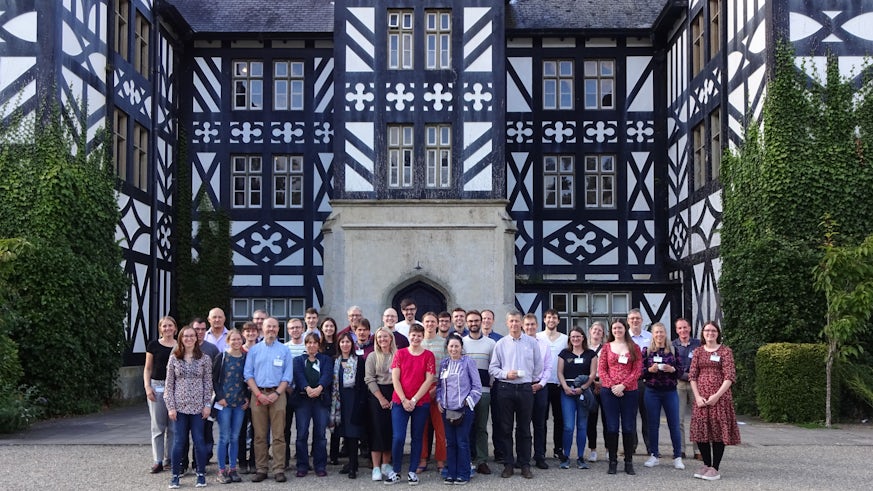2022 WET Weather workshop takes place at Gregynog Hall
27 October 2022

Windstorms and flash floods are expected to become more damaging in an increasingly warming climate. To manage increasing financial and physical risk, it is critical that the public and private sectors have robust guidance on the plausible range of change. However, when climate is shifting, traditionally applied statistical methods become difficult to use.
The 2022 WET Weather workshop at Gregynog Hall brought together different scientific disciplines as well as sectors to demonstrate their understanding, research focus and methods when working on weather extremes, particularly within the context of climate change.
Keynote lectures were given by lead scientists in their field:
- Petra Friederichs (Senior Lecturer in Climate Dynamics, BMBF ClimXtreme Lead for Statistical Modeling for Non-stationary Spatial Weather Extremes, Bonn)
- Douglas Maraun (Head of Regional Climate Modelling Group, Wegener Center for Climate and Global Change, Graz)
- Claudia Neves (KCL, EPSCR Innovation Fellowship in Forecasting Multiple Hazards)
- Thordis Thorarinsdottir (Chief Research Scientist, Norwegian Computing Center, ClimateFutures Leader group member, Innovation Area Lead for Renewable Energy).
In a spontaneous late evening session, Richard Chandler (UCL) and Reinhard Schiemann (Reading), also offered their thoughts on dealing with uncertainties in this context, whilst Holger Rootzen (Gothenburg) contributed remotely.
In addition to academic participants, this year’s workshop included narratives on how weather extremes feature in the wider society. Invited participants from regulatory agencies (environment and finance), industry (finance and water), and public sector (Cardiff) gave their perspectives on how and why extremes are relevant in their work. The workshop participants were given a unique insight into current challenges our invited public and private sector participants face from a data, method, and support/guidance perspective.
A central aim of this workshop was to inspire exchange of ideas or new collaborations, to challenge traditional views and practice. The workshop also featured dedicated breakout sessions capturing participants' views on overarching challenges and collecting ideas for future collaboration. A synthesis report of these discussions will be published soon, in the meantime presentation slides are available.
This workshop was supported by the Royal Statistical Society 2nd Mardia Prize and an Innovation for All grant.


